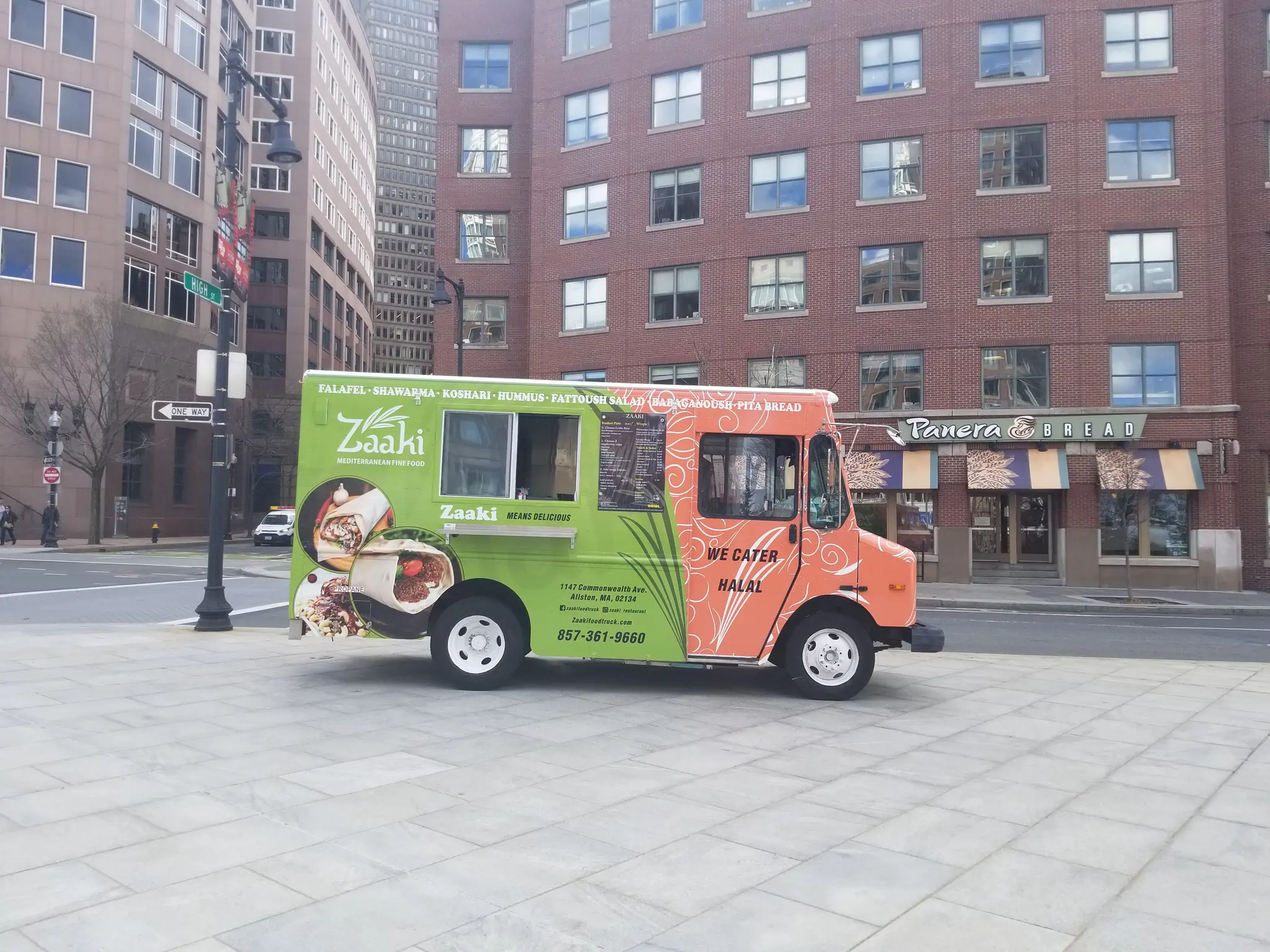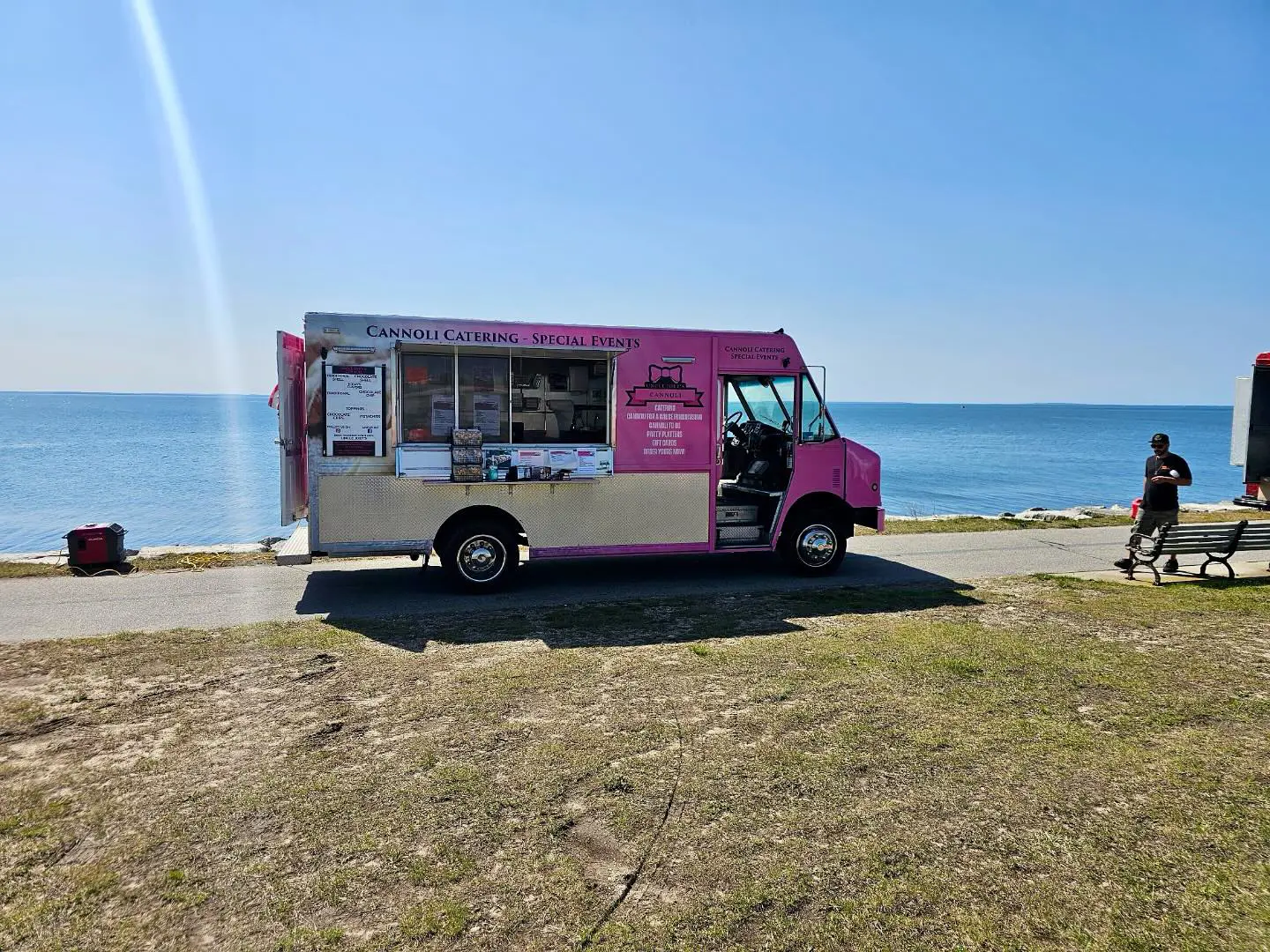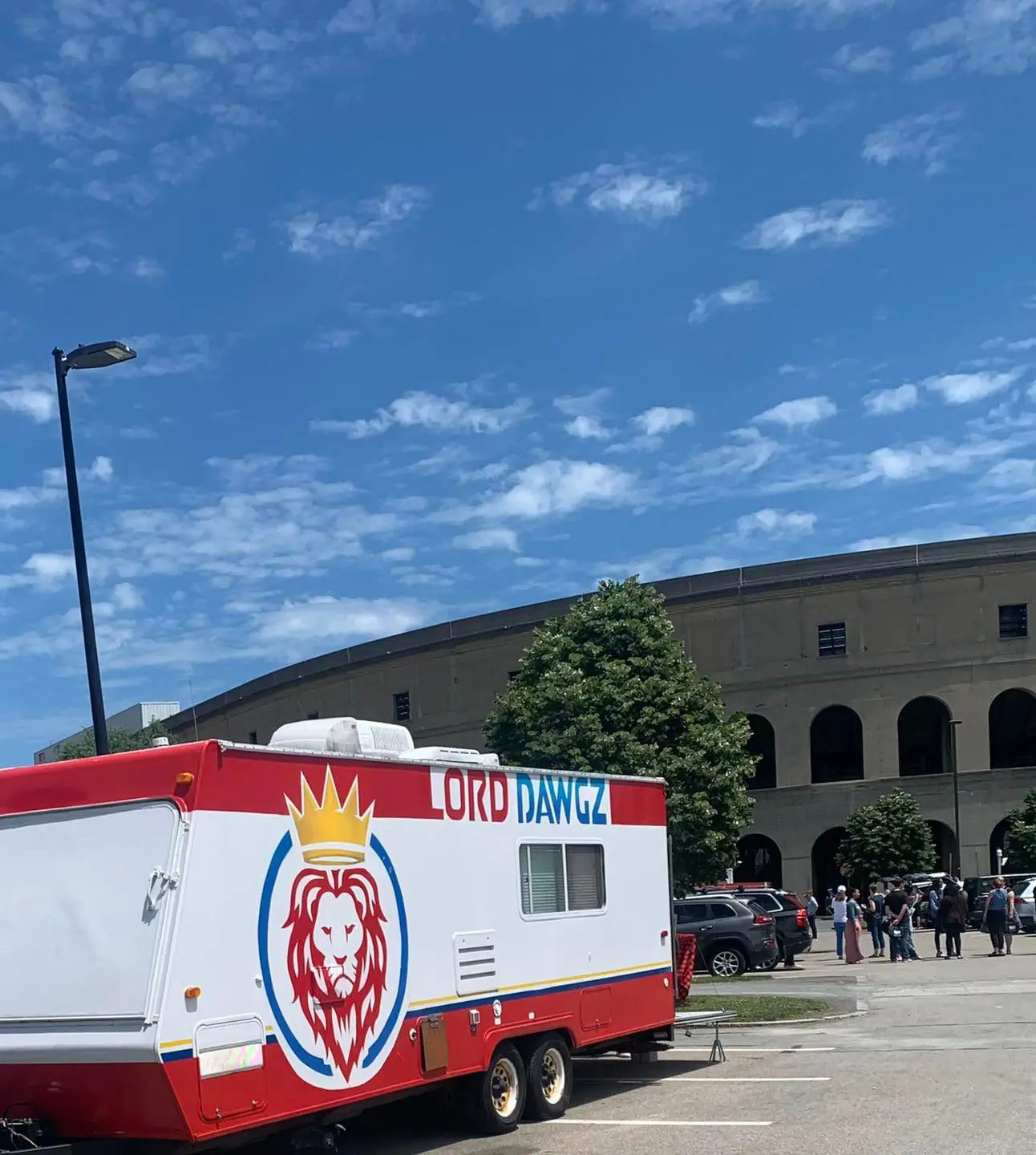Permits and Licenses 2026
Unlocking Boston's Mobile Culinary Frontier: Your 2026 Roadmap to Food Truck Permits
In the heart of Boston, where historic cobblestones meet modern innovation, food trucks have evolved from roadside novelties into a cornerstone of the city's vibrant street food culture. As of 2026, with over 95 permitted trucks weaving through neighborhoods like the Seaport District and Fenway, the sector generates an estimated $1.2 billion in annual economic impact, blending immigrant flavors, sustainable sourcing, and late-night cravings. Yet, for aspiring entrepreneurs, the path to rolling out your dream menu—whether it's fusion empanadas or gluten-free lobster rolls—is paved with bureaucratic hurdles. Boston's regulatory framework, updated this year with enhanced digital applications and a new late-night vending program, remains one of the nation's most stringent, designed to ensure public safety, fair competition, and environmental accountability.
This guide demystifies the process, drawing on the latest City of Boston ordinances and state guidelines. We will walk you through the mandatory six operating permits, vending site strategies, the capstone Food Truck Permit, and essential add-ons like insurance and tech mandates. Whether you are a seasoned chef eyeing mobility or a first-time operator sketching business plans, these insights will save you time, money, and frustration. By the end, you will be equipped to launch legally, sustainably, and profitably in Beantown's bustling mobile food ecosystem.
Why Boston's Food Truck Regulations Matter in 2026
Boston's food truck program, formalized in 2011 and refined through annual updates, balances culinary creativity with urban realities. The 2025 revisions, announced by the Office of Economic Opportunity and Inclusion (OEOI), emphasize digital permitting via the Boston Small Business Portal, reducing processing times from eight weeks to four.
Key drivers include post-pandemic health protocols, climate-resilient operations (like EV incentives for trucks), and equity initiatives prioritizing minority owned businesses in lotteries.
Compliance is non-negotiable: Operating without permits risks fines up to $300 per day, vehicle impoundment, or a one-year ban from public sites. But the rewards are substantial; successful trucks report average annual revenues of $346,000, with top performers exceeding $500,000 through hybrid public-private vending.
Before diving into steps, assemble your core team: A Certified Food Protection Manager (CFPM), a mechanic familiar with NSF-certified equipment, and a consultant versed in the Massachusetts Retail Food Code (105 CMR 590.000). Budget $2,000 to $5,000 for initial paperwork and inspections alone.
Step 1: Securing the Six Essential Operating Permits
The foundation of your operation lies in six interdependent permits, each scrutinized for safety and legitimacy. You cannot advance to site approval or the final Food Truck Permit without them. Applications are now streamlined through the OEOI's online portal, but physical inspections remain mandatory. Expect 4 to 6 weeks total, assuming no revisions.
1. Health Permit: The Gateway to Food Safety Compliance: Issued by the Boston Inspectional Services Department (ISD) under the Boston Public Health Commission (BPHC), this permit validates your truck's hygiene and operational blueprint. In 2025, with heightened focus on allergen controls and waste reduction, the process starts with a voluntary but highly recommended Plan Review.
- Plan Review Process: Submit blueprints, equipment lists, and a sample menu to an ISD Health Inspector at 1010 Massachusetts Avenue. This 30-minute consultation flags issues like inadequate handwashing stations or non-compliant refrigeration (must maintain 41°F or below).
- Cost: Included in the $100 fee.
- Inspection Day: Schedule via the BPHC portal (now with same week slots for certified applicants). Bring your sample menu, CFPM certificate (from ServSafe or equivalent, renewed every 5 years), and commissary agreement. The inspector verifies three-compartment sinks, pest proofing, and proper labeling for allergens. Propane setups require prior BPHC nod.
- 2025 Updates: Digital submission of inspection checklists via the portal speeds re-inspections; failures now trigger a 14-day grace period instead of immediate shutdowns.
- Cost and Renewal: $100 covers plan review and the first year; renew annually with a $50 fee if no major changes. Pro Tip: Partner with a licensed fabricator early—retrofits can add $5,000.
2. Fire Permit: Safeguarding Against Flames and Fumes. Coordinated with the health inspection, the Boston Fire Department (BFD) evaluates fire risks at the same 1010 Massachusetts Avenue site. This is crucial for trucks using open flames, which 70% of Boston operators do.
- Requirements: Install an ANSUL fire suppression system over cooking areas and stock a 40B: C extinguisher (or K class for fryers). Propane tanks must be secured externally with auto shutoff valves. Inspectors test suppression activation and egress paths.
- Application: Submit the BFD Form FP 1 online post-health approval. Inspections last 45 minutes.
- Cost: $110 annually, with a $25 late fee for renewals after March 1.
- 2025 Enhancements: BFD now offers virtual pre-inspections via Zoom for out-of-state builders, cutting travel costs. Non-compliance, like missing hood filters, incurs $200 spot fines.
3. Hawker and Peddler License: Empowering Your Frontline Team
Every cash handling employee needs this state-level license from the Clerk of Courts, ensuring ethical vending practices.
- Application Steps: Each applicant files Form TP 1 at One Ashburton Place, Room 1115, including fingerprints ($35 fee) and a "Certificate of Character" from your local police chief (free, but takes 2 weeks).
- Background checks screen for fraud history.
- Who Needs It: Owners, cashiers—up to 4 per truck. Minors under 18 require guardian consent.
- Cost and Renewal: $62 per person annually; renew by January 31 to avoid $20 penalties.
- 2025 Note: Digital fingerprinting at select UPS stores accelerates processing to 7 days, a boon for seasonal hires.
4. Business Certificate: Registering Your Enterprise
This DBA (Doing Business As) filing with the City Clerk legitimizes your operation locally.
Process: If based in Boston, apply at City Hall, Room 601, with proof of LLC or sole proprietorship status. Out of the city? File in your home municipality.
Details: List all owners, addresses, and NAICS code 722330 (Mobile Food Services).
Cost: $65 initial; $50 every 4 years.
2025 Streamline: Online filing via Mass.gov integrates with tax ID setup, auto-generating your EIN if needed.
5. Commissary Kitchen Agreement: Your Offsite Nerve Center
Massachusetts mandates a licensed base for prep, storage, and sanitation—food trucks cannot function as standalone kitchens.
Requirements: Secure a signed contract with a BPHC-approved facility (e.g., shared spaces like The Food Corridor listings). Report twice daily for cleaning and resupply; maintain logs for audits.
Finding One: Options range from $400/month church kitchens to $1,200 dedicated bays. Capacity must match your menu—e.g., refrigeration for 200 lbs of proteins.
2025 Update: New sustainability clause requires zero-waste composting plans; EV charging at commissaries qualifies for $500 OEOI rebates.
Cost: Baked into rent; includes $200 for initial setup.
6. Trimble GPS Contract: Real-Time Transparency
Boston's hallmark tech mandate equips your truck with geolocation for public tracking via the OEOI app.
Setup: Lease from Trimble Navigation; contract covers hardware, installation, and Sprint data.
Costs (Unchanged in 2025): $299 equipment, $89 one-time install, $35/month data.
Process: Submit forms to Trimble's Boston liaison; activation takes 48 hours.
Benefits: Boosts visibility—trucks with GPS see 20% more foot traffic via the "Find My Truck" map.
Step 2: Navigating Vending Site Approvals
With permits in hand, claim your turf. Boston's 20+ public sites host 95 trucks, but competition is fierce.
Public Sites: Lottery for Prime Real Estate
Administered by Public Works, these include Tier 1 (high traffic like City Hall Plaza) and Tiers 2/3 (neighborhood gems).
Lottery Process: Annual draw on April 10, 2025, at 4 p.m. (virtual option via Zoom). Register by April 8 with your full permit packet, business plan (detailing eco practices), and community impact statement.
Fees: $500 annual site license, prorated for late entries.
2025 Innovation: Late Night Program lottery on June 6 for 7 new sites near hospitals and venues, running from summer to fall, sign up by June 4 for shifts until 1 a.m.
Rules: Vend every shift or notify 24 hours ahead; three no-shows trigger removal.
Private Sites: Tailored Partnerships
Lease from owners (e.g., office plazas) with a notarized agreement.
Permit Path: Apply for ISD "Use of Premises" ($100); denials common—appeal to Zoning Board ($150 fee, 30-day hearing).
Pros: Flexible hours; cons: 10% sales commissions.
Special Sites: Niche Opportunities
MBTA or Greenway spots require entity-specific apps (e.g., $200 MBTA fee plus transit compliance).
Step 3: The Capstone Food Truck Permit
Submit to Public Works, Room 714, City Hall, once steps 1 and 2 are clear.
- Application: Online form with all docs; $500 fee (check to City of Boston).
- Review: 2 weeks; pickup required.
- Renewal: Annual by March 31; $500.
Beyond Permits: Insurance, State Rules, and Best Practices
Insurance Essentials: $1M general liability ($2,000/year) and product liability ($1,500/year) via providers like Food Liability Insurance Program. List City as an additional insured. Comply with Mass DPH Retail Food Code (105 CMR 590) statewide. Additionally, obtain LBOH approval ($50 each) in every city/town where vending occurs. Foreign entities must register with the MA Secretary of State ($500) to legally operate in-state.
Pro Tips for 2026 Success:
- Digital Tools: Use OEOI's portal for 80% paperless apps.
- Equity Edge: BIPOC owners get lottery priority.
- Sustainability: LED lighting and compost programs earn $1,000 grants.
- Timeline: 3 months total; start in Q1 for April launch.
- Common Pitfalls: Underestimating commissary logistics (budget $800/month buffer).
- Launching in Boston demands diligence but yields unmatched vibrancy. With permits secured, focus on menu magic and marketing, your truck could be the next icon on the Freedom Trail.



